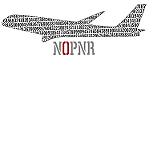 “The Council of the European Union should never have consented to the agreements allowing the transfer of passenger data to the USA, Canada and Australia, since other countries are now also demanding access to information on passengers in advance of every flight. New data retention on a massive-scale is taking place: according to the Federal Ministry of the Interior, police and secret services process all information collected by the airlines”, said Member of the Bundestag Andrej Hunko, in reaction to a reply from the Federal Government to a minor interpellation.
“The Council of the European Union should never have consented to the agreements allowing the transfer of passenger data to the USA, Canada and Australia, since other countries are now also demanding access to information on passengers in advance of every flight. New data retention on a massive-scale is taking place: according to the Federal Ministry of the Interior, police and secret services process all information collected by the airlines”, said Member of the Bundestag Andrej Hunko, in reaction to a reply from the Federal Government to a minor interpellation.
Mexico and South Korea are now also demanding the transfer of “Passenger Name Records” (PNR), in order to crosscheck data with that stored in the databases of their own security agencies. Russia has issued a decree ordering “Advanced Passenger Information” (API) to be made available, including for journeys made by boat, or overland trips. Countries are threatened with sanctions if they fail to comply.
Andrej Hunko continued:
“The Commission intends to develop a framework treaty to serve as a blueprint for all further agreements with third countries. Yet this data, which will soon be disseminated across all continents, will infringe significantly on passengers’ privacy: PNR data contains sensitive information on travel itineraries, preferences, fellow travellers or jointly booked hotel rooms.
At EU level too, a comprehensive PNR system is to be established, which the Federal Ministry of the Interior hopes will bring added value. However, due to criticism from several other governments, no proposal is to be expected from the Commission in the near future. Nevertheless, EU funds are already being provided for national PNR systems, including those of France, Spain, Finland, Italy and Latvia. These systems could later be synchronised into an EU-wide PNR system. This financial support is thus creating facts on the ground and undermining the parliamentary bodies of other Member States.
The fact that Russia also wants passenger data from journeys by train, ship and bus does not surprise me. The EU’s anti-terrorism coordinator had also made identical proposals on a PNR system for the EU Member States.
Passenger data is what is known as metadata, which can be used in conjunction with other collections of data and thus has a high informational value. The US Department of Homeland Security has admitted that it forwards European PNR data to the US secret services. All of this, on the anniversary of the revelations made by Edward Snowden, is sufficient reason to put the agreement on ice.
The Federal Government must fundamentally rethink its secret-service-style hunger for data and seek at EU level to ensure the downgrading of information systems of this kind. This applies to all large-scale retention of data, i.e. data on journeys and financial transactions and data gained via interception of telecommunications.”
The answer to the minor interpellation – “Agreements on passenger data transfer with Russia, Mexico, the United Arab Emirates and South Korea and the threat of flying bans – can be found here:
English: http://www.andrej-hunko.de/start/download/doc_download/472-agreements-on-the-transfer-of-passenger-data-with-russia-mexico-united-arab-emirates-and-south-korea-and-threatened-flight-bans
German: http://www.andrej-hunko.de/start/download/doc_download/463-antwort-auf-die-ka-abkommen-zur-weitergabe-von-passagierdaten-mit-russland-mexiko-den-vereinigten-arabischen-emiraten-und-suedkorea-und-androhung-von-flugverboten

